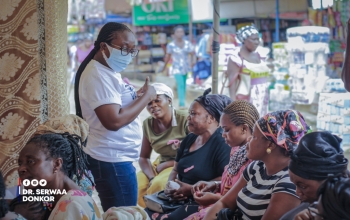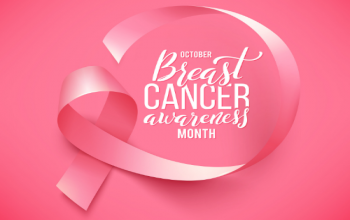Since its inception, the foundation has screened over 6,000 people who live in rural communities in the Eastern Region and counselled and treated dozens of women. It has also carried out 16 screening exercises in some rural communities in the country.
Prevalence
In Ghana, breast cancer has become a matter of concern considering that the disease is the second leading cause of deaths of women, after cervical cancer which is ranked first.
In his address to launch the foundation, Dr Arthur Dovlo of the Koforidua Government Hospital said in Ghana, a woman was diagnosed with breast cancer every three minutes and every 12 minutes, a woman died from it, describing it as a very worrying trend for the female population and medical practitioners.
Breast examination
He also said under the circumstance it was important that every woman examined her breasts carefully, because usually the affected women reported at hospitals when the disease had reached an advanced stage and could not be cured.
"Even though a small number of men also suffer from the disease, nobody knows for certain why women predominantly develop breast cancer. However, there are certain factors that increase the chances of one having breast cancer," he added.
Among the factors, he said, were: family history where two or more close relations had had the disease and where normal cells had become malignant and, therefore, turned cancerous.
Dr Dovlo advised that women, while examining their breasts, look out for lumps or changes in the colour and texture of their skins. "Right now, JEAD Foundation is buying medication for a few women who cannot afford chemotherapy treatment," he said.
Compassion
The founder of JEAD Foundation, Madam Judith-Ellen Awuah-Darko, who is herself a survivor of breast cancer, stressed that one important lesson she had learnt since she was cured of the disease was to show love to the deprived.
"I find it totally unacceptable that any woman should die of the disease because her personal finances will not enable her to seek remedy for the ailment," she said.
According to her, the foundation had plans to secure a mobile mammogram to test women for breast cancer and also establish a rural hospital to help women in the rural areas who did not have the means to seek medical treatment.
Mrs Awuah-Darko further expressed gratitude to all sponsors and volunteers for their support and hoped that in the years ahead they would continue their collaboration to fight breast cancer.
Major challenge
The Vice-Chairman of the Vanguard Group of Companies, the main sponsors of the foundation, Mr Daniel Awuah-Darko, noted that the biggest challenge facing the eradication of the disease was the unwillingness of those affected to report at hospitals because of stigmatisation.
He observed that what was needed was for female role models who had had the disease to come out and encourage other women to do so.



